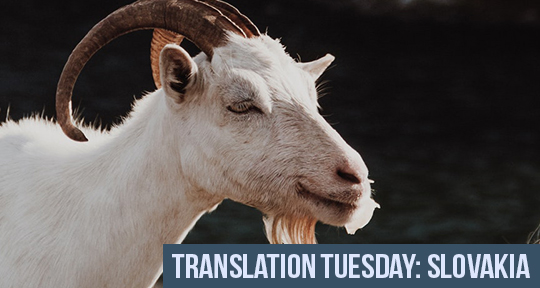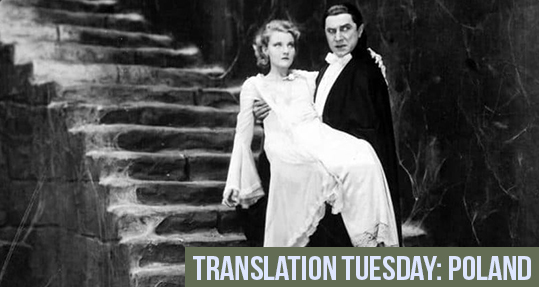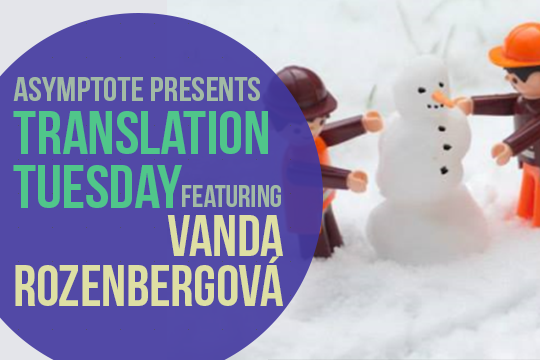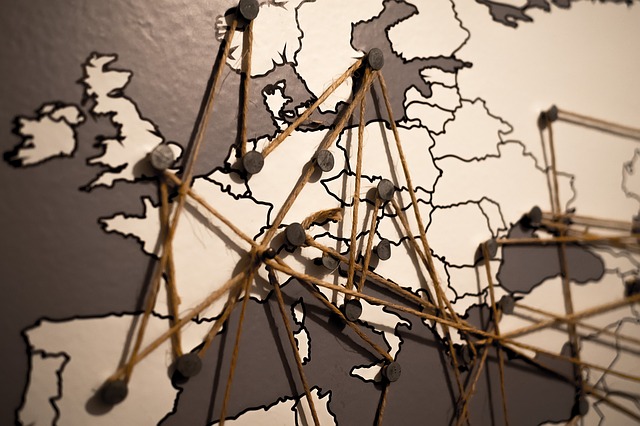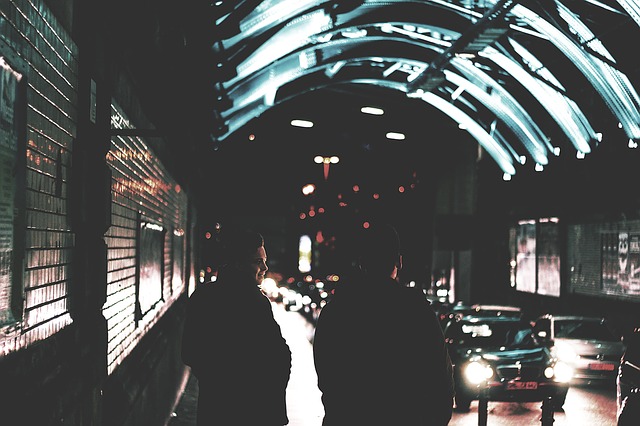This Translation Tuesday, we feature a story from Slovak writer Ivana Dobrakovová’s European Union Prize-winning collection of short stories Mothers and Truckers. Told from the perspective of a young woman who brings up memories of her father, this story—translated by our very own editor-at-large for Slovakia, Julia Sherwood, and Peter Sherwood—employs a first-person voice that is compelling and speaks from the very core of a childhood that is at once stained and sustained by these recollections. Hear from our translators on the themes and connections of the forthcoming collection which opens with this powerful story.
““Father” is the opening story in Mothers and Truckers, a collection of five stories by Slovak writer Ivana Dobrakovová, set in her hometown of Bratislava, and in Turin, Italy, where she now lives. Each of the stories features a troubled young woman living through, or reliving, a variety of traumatic events and Dobrakovová has given each a distinct voice in which they deliver cascading internal monologues that are intense, searingly honest and often very funny. As Hungarian literature scholar Anna Gács notes in her foreword to the English edition, due from Jantar Publishing on 30 June: “By focusing on the mental processes of her protagonists, sometimes almost in a stream-of-consciousness manner, she offers us five sensitive portraits written with an abundance of empathy, down to the most ironic details.” While four of the protagonists struggle to shake off the influence of dominant mothers and to escape from claustrophobic relationships with neglectful husbands or partners, or seek solace in imaginary relationships, here the author focuses on on the impact on the narrator of her father’s mental decline and descent into alcoholism.”
—Julia and Peter Sherwood
What do I know about my parents’ relationship? The less the better? To be on the safe side? Mum must have seen something in him. But what exactly?
She said that once Dad had told her, in the presence of other people, that she was not only intelligent but also beautiful. It must have been quite a statement, an exceptional compliment for her to cherish the memory of it so much. To want to share it with me. He had always had a drinking problem, which is why, as long as I can remember, I always thought of it as something inseparable from him, a part of him that was meant to be that way. Just like his illness. There’s no point trying to figure out which came first, the chicken or the egg, what was the cause and what was the effect: his unstable mental state, the age-old proclivity to drink, the genetic predisposition to both that got all mixed up, reinforcing each other until they came to form his very essence.
Nevertheless, some episodes do stand out.
One night, Mum, at the end of her tether, dragged us out of bed. ‘Girls, get up, go and tell your Apuka that we live one floor higher up’. My sister and I staggered out into the stairwell in our pyjamas, drowsy with sleep. We didn’t understand what was going on. We found Dad one floor below, persistently ringing our neighbour’s doorbell even though the neighbour was standing in his open doorway trying to stop him. With great difficulty, the two of us then helped Mum haul him upstairs and into our flat. I don’t know when exactly this happened. Or how old I was at the time. My sister was still at the same school as me, so I would have been in the third form. One of the first incidents of this kind, to be followed by many more. It felt bizarre. Like a bad dream. Like a night-time escapade foreshadowing my eventful youth. READ MORE…

